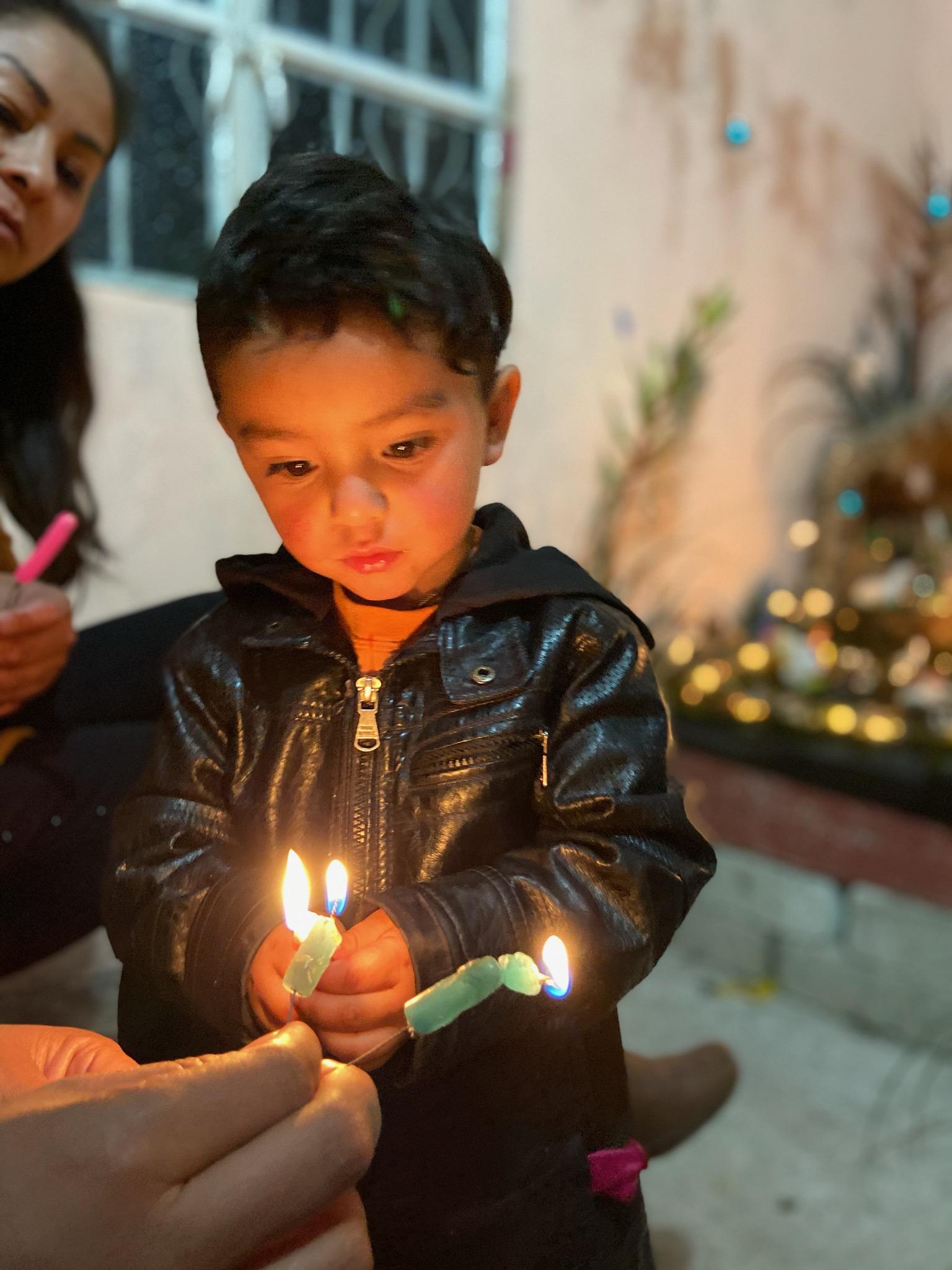Por Mary J. Andrade
En el Norte de San Diego, muchas personas celebran una posada en los días anteriores a la Navidad. Pero este festejo suele darse a lo largo de nueve noches en sus países de origen.
Las tradicionales Posadas se celebran del 16 al 24 de diciembre. Por un lado, las Posadas representan los nueve meses antes del nacimiento del Redentor y, por otro lado, simbolizan el recorrido de la Virgen María y su esposo José al salir de Nazaret para cumplir con la orden dada a los habitantes de Judea de empadronarse en sus ciudades de origen. José era descendiente del Rey David, nativo de Belén. En el camino, tuvieron que buscar “posada”.
Hoy, estas festividades tienen la magia de despertar entusiasmo en los corazones. Los vecinos se reúnen y salen a hacer un recorrido por los vecindarios; se detienen frente a las puertas de los hogares donde ya se les espera. Al llegar a su destino (la casa de los vecinos), piden posada, al cantar, “En el nombre del cielo, os pido posada, pues no puede andar mi esposa amada…”,
Esto da lugar a un diálogo cantado entre los peregrinos y los dueños de casa, quienes finalmente permiten el ingreso.
Fiesta católica
Las Posadas son parte inherente de la celebración navideña en los hogares católicos. En algunos casos, se dan ciertas variaciones según del país de origen de los dueños de casa, quienes engalanan la celebración con aspectos tradicionales de sus países.
La celebración de la Navidad llegó a México en el mismo navío en el que Cortés arribó a las costas de Veracruz en 1519, con los primeros evangelizadores, quienes utilizaron el teatro como uno de los recursos didácticos en su proceso misional. Las representaciones tenían lugar en los atrios, frente a las capillas abiertas.
En el siglo XVII, nació en la Nueva España el villancico, una forma musical que se ejecutaba en los actos litúrgicos, donde se entremezclaban con los salmos.
Las piñatas, que son indispensables en toda celebración mexicana, se originaron en Italia, donde los primeros días de cuaresma se rompía una olla de barro. Al llegar a México, se les vistió con papel de colores. Con el paso de los siglos, su forma fue modificándose.
Al intentar pegar la piñata, los niños escuchan a los demás cantar:
Dale, dale, dale,
no pierdas el tino,
Porque si lo pierdes,
pierdes el camino.
Ya le diste una,
ya le diste dos,
ya le diste tres
y tu tiempo se acabó.

Las Posadas en Oaxaca
En diciembre, la ciudad capital de Oaxaca se viste de fiesta. Desde los primeros días del mes, el centro de se convierte en el eje de las actividades culturales y sociales de sus habitantes. Son días de color, música y religiosidad. Algunas celebraciones incluyen la de la Virgen de Juquila, el 8 de diciembre; de la Patrona de Oaxaca, la Virgen de la Soledad, el 18; la del Festival del Rábano, la noche del 23; y las Posadas, del 16 al 24 de diciembre. Estas celebraciones, llenas de regocijo y colorido, sirven como vínculo para que también se exprese el prodigioso folklore de las siete regiones que componen el estado.
Como parte de la costumbre, se sirve chocolate caliente, acompañado de buñuelos, mientras los pequeños participan en el rito de romper la piñata, que por lo general representa la Estrella de Belén que guió a los Reyes Magos. Se reparte también la colación o aguinaldos, mientras grandes y chicos cantan:
Ande madrina,
no se dilate
con los confites
y los cacahuates…




